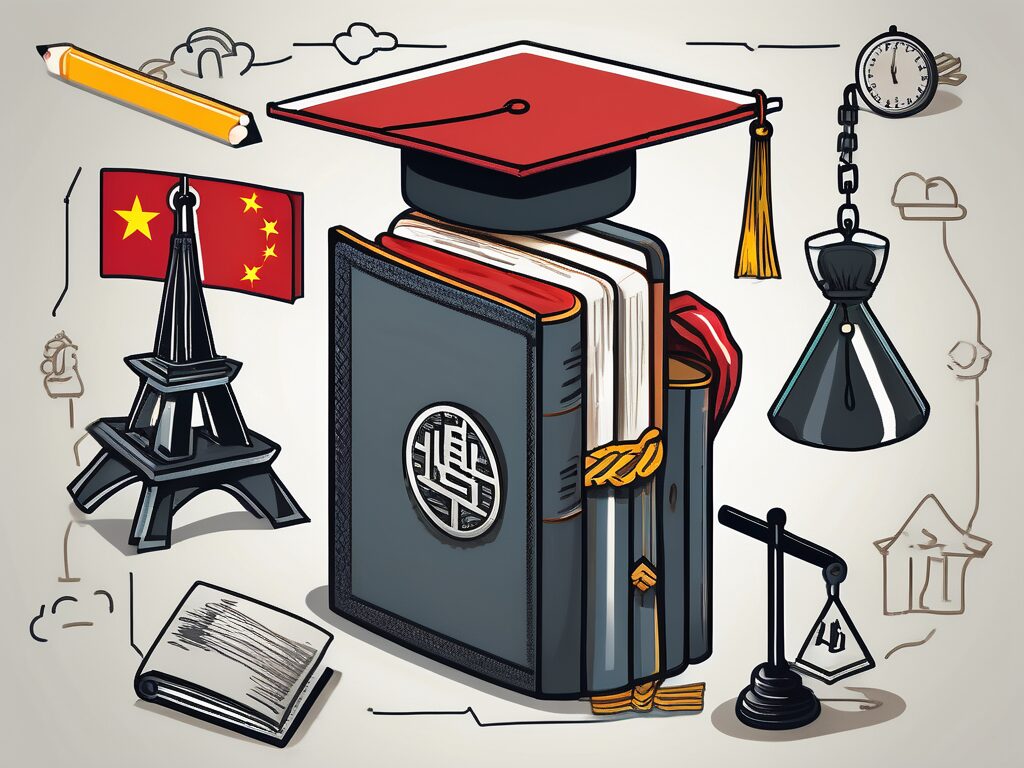China, a country known for its rich history, cultural diversity, and economic prowess, is also home to one of the largest education systems in the world. However, despite its vastness and the government’s efforts to improve it, the higher education sector in China is faced with a myriad of issues. This piece will delve into five of the most pressing problems that are currently plaguing China’s higher education system.
1. Overemphasis on Rote Learning
The Chinese education system is notorious for its heavy reliance on rote learning. This method of teaching, which involves memorising information based on repetition, is prevalent in higher education institutions across the country. While it may be effective for certain subjects, it does not foster critical thinking or creativity, skills that are essential in the modern workplace.
Compare this to the education system in countries like the UK or the US, where there is a greater emphasis on understanding concepts and applying knowledge. This difference in teaching methods could potentially put Chinese graduates at a disadvantage in the global job market.
Impact on Students
Students who are used to rote learning often struggle when faced with tasks that require problem-solving or innovative thinking. This could limit their career prospects, especially in fields that value creativity and originality.
Furthermore, the focus on rote learning can lead to high levels of stress among students. The pressure to memorise vast amounts of information can be overwhelming, leading to mental health issues such as anxiety and depression.
2. Inequality in Access to Higher Education
Despite the Chinese government’s efforts to expand access to higher education, there is still a significant gap between urban and rural areas. Students in rural areas often have fewer opportunities to attend university compared to their urban counterparts.
The reasons for this disparity are manifold. For one, the quality of education in rural schools is often lower than in urban schools. This can make it harder for rural students to pass the gaokao, the national university entrance exam.
Impact on Society
This inequality in access to higher education can perpetuate social and economic disparities. Those who are unable to attend university are more likely to end up in low-paying jobs, which can lead to a cycle of poverty.
Moreover, this issue can contribute to the rural-urban divide in China. As more and more people move to cities in search of better opportunities, rural areas are left behind, leading to a decline in their economies and communities.
3. Lack of Autonomy for Universities
In China, universities are heavily controlled by the government. This lack of autonomy can hinder innovation and academic freedom, as universities are often required to align their policies and curricula with government directives.
Compare this to universities in Western countries, which generally have a high degree of autonomy. This freedom allows them to adapt their programmes to meet the needs of their students and the demands of the job market.
Impact on Academic Freedom
The lack of autonomy for universities can stifle academic freedom. Professors may be hesitant to explore controversial topics or challenge government policies, for fear of repercussions. This can limit the scope of research and hinder the development of new ideas.
Furthermore, this lack of academic freedom can affect the quality of education. Without the freedom to innovate and adapt, universities may struggle to keep up with the rapidly changing world.
4. High Pressure and Competition
The Chinese education system is known for its high levels of pressure and competition. This is particularly true in higher education, where students are constantly competing for top grades and prestigious job placements.
This intense competition can have serious consequences for students’ mental health. Many students report feeling stressed, anxious, and depressed due to the pressure to succeed.
Impact on Mental Health
The high levels of pressure and competition in Chinese higher education can lead to a range of mental health issues. Studies have shown that Chinese students have higher rates of depression and anxiety compared to their peers in other countries.
Furthermore, the pressure to succeed can lead to unhealthy behaviours, such as cheating and excessive studying. This can further exacerbate mental health issues and lead to a vicious cycle of stress and anxiety.
5. Lack of Practical Skills
Another major issue in Chinese higher education is the lack of practical skills among graduates. Many employers complain that Chinese graduates lack the practical skills needed in the workplace, such as problem-solving, communication, and teamwork.
This issue is partly due to the focus on rote learning and academic achievement in Chinese education. Students spend so much time memorising information that they don’t have the opportunity to develop practical skills.
Impact on Employability
The lack of practical skills can affect graduates’ employability. Employers are looking for candidates who can apply their knowledge in practical ways, and who have the skills to work effectively in a team and communicate clearly.
Furthermore, this issue can contribute to the skills gap in China. Despite the large number of university graduates, many employers report difficulties in finding candidates with the right skills for their needs.
In conclusion, while China’s higher education system has made significant strides in recent years, it still faces a number of challenges. Addressing these issues will be crucial for the future development of China’s economy and society.
Advance Your Teaching Career with IPGCE
As China’s higher education system grapples with these challenges, the role of qualified educators becomes ever more crucial. If you’re an educator striving to enhance your qualifications and overcome the barriers to international teaching positions, consider the International Postgraduate Certificate in Education (iPGCE). This Level 7 programme is designed to propel your career forward, offering a 50% increase in interview callbacks and a 45% boost in promotion rates. Embrace the opportunity to join a global network of professionals, gain a deeper understanding of international curricula, and balance your professional development with your existing commitments. Join the UK’s #1 Teacher Training Course today and take the next step in your educational journey.

